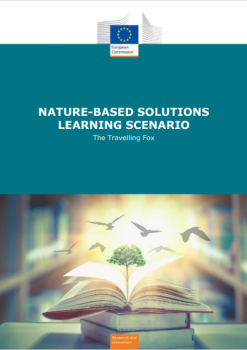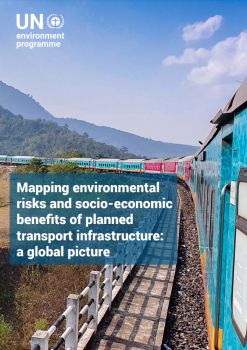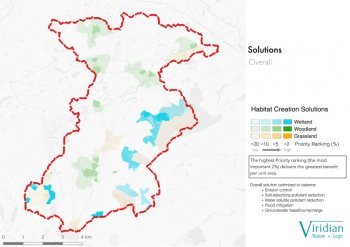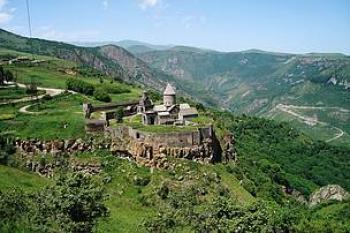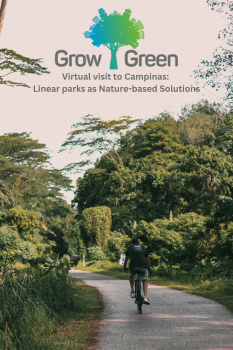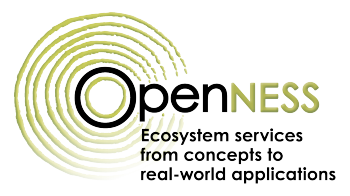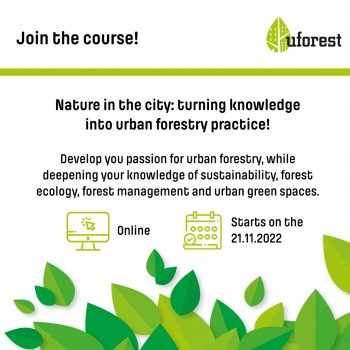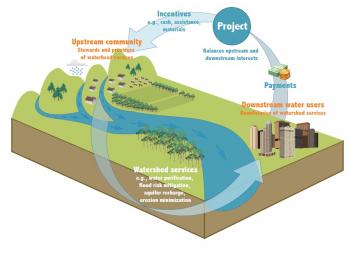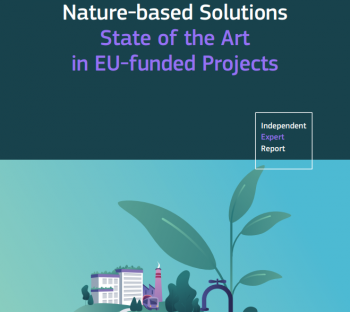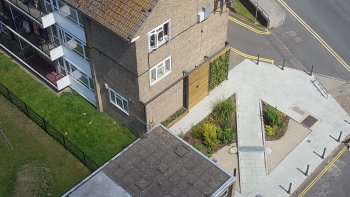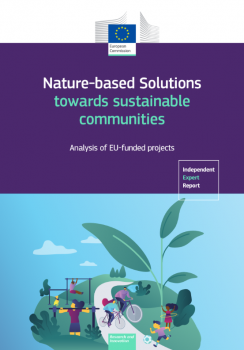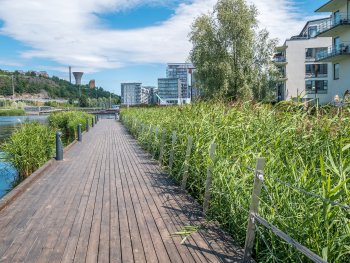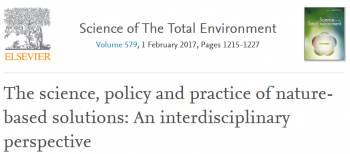Protecting the Amazon can protect the Climate
Amazon Protected Areas are key in helping communities and nature adapt to a changing climate. They build resilience to climate change globally, mitigate the impacts of climate events, ensure the provision of ecosystem services and protect biodiversity. Protected Areas should be included in climate
URBAN GreenUP Nature-based solution catalogue
The target of this document is the definition of a catalogue of Nature Base Solutions (NBS) that includes all the possible characteristics (technical, economic, environmental, and social) of each one of them. In order to be able to select the best options to introduce them in the development of
The Travelling Fox
In this learning scenario, students are familiarised with the concept of social and environmental justice through the story, photos, and videos of Foxy Travel – a fox who likes travelling across Europe. Via web 2.0 apps (for example: Padlet, MindMup, WordItOut), students analyse Foxy’s “
Mapping environmental risks and socio-economic benefits of planned transport infrastructure: a global picture
This technical report investigates the benefits of planned road and rail transport infrastructure projects for society and the economy, as well as the consequences for biodiversity and ecosystem services. To date, impacts of infrastructure development on ecosystem services have not been widely
Viridian modelling of nature-based solutions
We use sophisticated modelling to identify, rank and prioritise Nature-based Solutions to multiple problems such as flooding, water resource supply, river pollution, soil loss, poor farm management and biodiversity loss. Our engaging communications show best bang for buck actions, with many
- Video
PHUSICOS - Caídas de bloques en Artouste
The hazard at Artouste is caused by rockfalls, both from exposed rock ledges and from loose blocks sitting on the surface of the till on the steep slope. The site is adjacent to the Artouste hydroelectric dam, where the RD-934 road descends from the level of the dam to its base. The slope is steep
Clima East
Clima East is a European Union funded project package assisting the Eastern Neighbourhood Partnership Countries and Russia in approaches to climate change mitigation and adaptation.
Establishment of Community-based Models for Biodiversity Protection in Ecological Corridors in the Southern Caucasus (Armenia)
Establishment of Community Based Conservation Areas (CBCA) will help counteract the negative effects of unsustainable use of natural resources. CBCA models will be set up based on ecosystem services that result in biodiversity conservation and additional income for local communities via well-
GrowGreen visit to Campinas: how linear parks can make a difference for people, nature and the economy
In order to strengthen engagement from political decision-makers and to create opportunities for the replication of Nature-Based Solutions (NBS), the political representatives of the GrowGreen cities were invited to participate in a virtual visit to the city of Campinas, Brazil. With more than 1
Scenario Planning Factsheet
In scenario planning various tools and techniques are applied (often in combination) to develop plausible and internally consistent descriptions of alternative future options (Johnson et al. 2012). Assumptions about future events or trends are questioned, and uncertainties are made explicit (
Nature in the city: turning knowledge into urban forestry practice
Are you passionate about forestry, sustainability, and urban design? Would you like to learn how to promote the green transition of cities? This online course provided by Uforest is the right opportunity for you! Urbanisation and climate change are two of the most difficult challenges our
Nature-based solutions for creating circular cities Course
This course provides knowledge on how to create such cities by using nature-based solutions (nbs). It comprises knowledge on resources flows and management of these flows in cities, appropriate nature- based solutions for managing resources, implementation aspects and number of worked examples to
Payment for Ecosystem Services (PES)
Payment for Ecosystem Services (PES) programmes have been increasingly established across the globe in the last few years. PES is a type of market-based instrument that is increasingly used to finance nature conservation. PES programmes allow for the translation of the ecosystem services (ES) that
Taking Action for Urban Nature - Business Models
The Business Models Catalogue for urban nature-based solutions presents eight different business models for urban NBS. These were identified based on 54 in-depth case studies of urban NBS, both in- and outside of Europe. These models explain which values propositions can drive urban NBS funding.
Nature-based Solutions State of the Art in EU-funded Projects
This document summarises outcomes from the EC individual expert reports delivered through its ‘Valorisation of NBS Projects’ initiative. EU research and innovation projects were scanned for results pertaining to key areas such as biodiversity, climate change mitigation and adaptation (including
Nature-based solution evaluation indicators: Environmental Indicators Review
A report comprising reviews of core and recommended evaluation indicators for evaluating the benefits, co-benefits, and trade-offs associated with nature-based solution indicators. Review comprises those indicators selected within the Connecting Nature WP1 indicators scoping coproduction exercise
Nature-based solutions towards sustainable communities: Analysis of EU-funded projects
Over the past thirty years local communities have remained at the heart of efforts to address sustainable development across the European Union, mobilised by a wide range of policies and initiatives to develop sustainable, smart, low carbon, resilient and eco-cities. As interventions that promise
International Comparison of Nature-Based Solutions
This report explores the dynamics and politics of urban nature-based solutions innovations by comparing governance arrangements, public participation, financing mechanisms, innovation patterns and social impacts associated with the emergence and deployment of 54 nature-based solutions interventions
The science, policy and practice of nature-based solutions: An interdisciplinary perspective
In this paper, they reflect on the implications for science, policy and practice of the recently introduced concept of Nature-Based Solutions (NBS), with a focus on the European context. First, they analyse NBS in relation to similar concepts, and reflect on its relationship to sustainability as an
Netbiome-CSA Biodiversity Toolbox
The Biodiversity Toolbox of the NetBiome-CSA network—a partnership for research and sustainable management of (sub)tropical biodiversity in European Overseas Regions (ORs) & Territories (OCTs)—provides a database of stakeholders in biodiversity management and research, including areas of
- 1 of 41
- next ›



